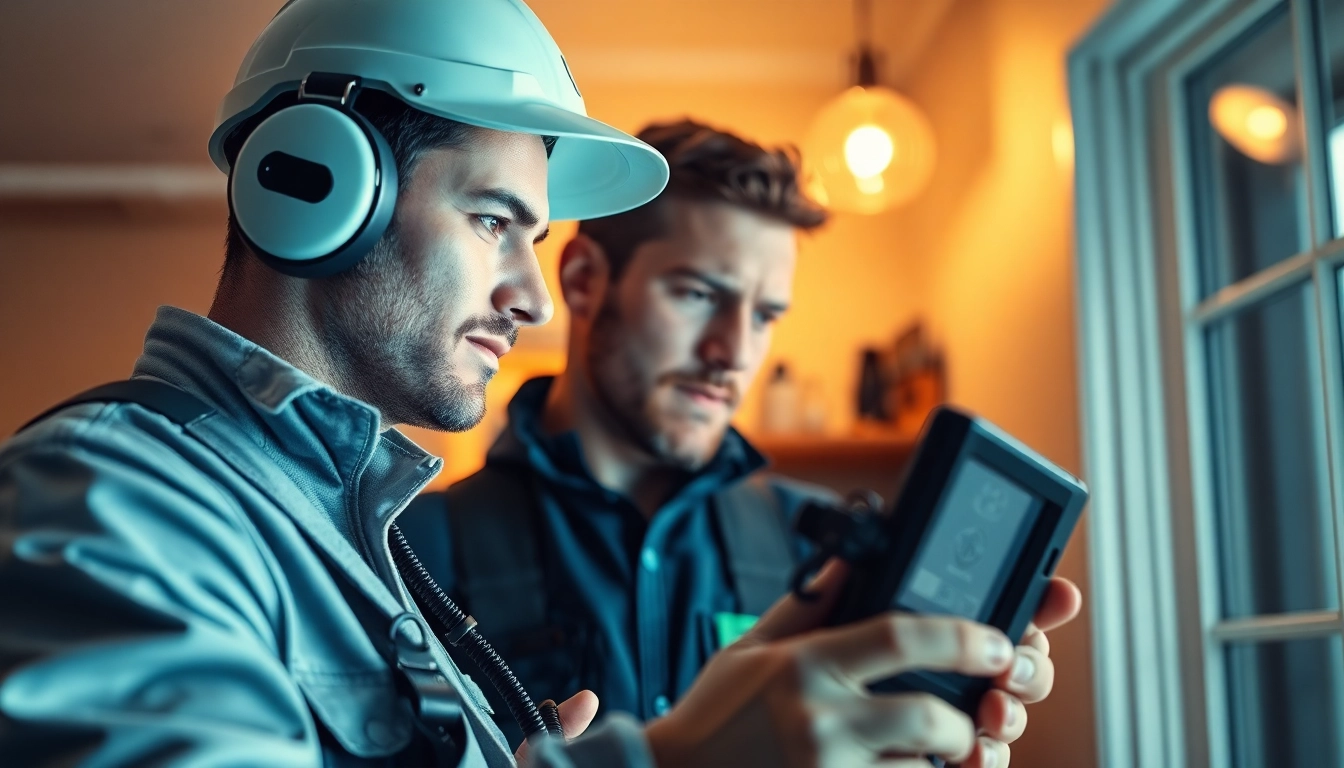Ultimate Guide to Locating Leaks: Insights from a Leak Detection Specialist

Understanding Leak Detection
What is a Leak Detection Specialist?
A Leak Detection Specialist is a trained professional who focuses on identifying leaks in various environments, including residential, commercial, and industrial settings. These specialists employ advanced techniques and tools to detect leaks that often remain undetected until they cause significant damage. The work of a leak detection specialist extends beyond immediate repairs; they serve to prevent further complications and expenses, making their role crucial in maintaining the integrity of plumbing systems.
Importance of Early Leak Detection
Early detection of leaks is vital for several reasons. First, it helps to mitigate damage to property, which can be extensive and costly. Water leaks can lead to structural damage, mold growth, and increased utility bills. A small leak may seem manageable, but once it escalates, the implications on property and health become severe. Furthermore, identifying leaks early allows for simpler, cost-effective repairs, as opposed to the more complicated and expensive interventions required when leaks are left unattended.
Types of Leaks Handled by Specialists
Leak detection specialists are equipped to handle a variety of leak types, including:
- Water Leaks: Often occurring in plumbing fixtures, pipes, and under sinks, these leaks can cause severe water damage over time.
- Sewer Leaks: These are particularly hazardous and involve the leaking of wastewater, potentially leading to contamination and health risks.
- Gas Leaks: Critical for safety, gas leaks require immediate attention and can have severe implications if not dealt with right away.
- Pool and Spa Leaks: These specialists also find leaks in swimming pools and spas where water loss can lead to more profound issues.
Signs You Need a Leak Detection Specialist
Common Indicators of Hidden Leaks
Several signs might indicate undetected leaks in your home or business. Look out for:
- Unexplained increase in water bills
- Damp spots on walls or ceilings
- Mold or mildew growth in moist areas
- Musty odors indicating moisture
- Cracks in walls or foundations
How to Identify Water Damage
Water damage can manifest in various forms and identifying it quickly can save you from significant repair costs. Look for:
- Peeling or bubbling paint and wallpaper
- Warping or discoloration of floors
- Rust on metallic fixtures or plumbing
- Stains on ceilings and walls
Frequency of Leak Detection Services
It is advisable to schedule leak detection services on a regular basis, especially if you live in areas prone to moisture issues. Homeowners should consider inspections at least once every few years to prevent potential leaks. In high-risk areas, such as homes with aging plumbing or those with a history of water damage, more frequent inspections might be necessary.
Technologies Used by Leak Detection Specialists
Non-Invasive Detection Methods
Modern leak detection has moved away from invasive methods that can damage property and is now focused on non-invasive techniques. These methods include:
- Infrared Thermography: This technology detects heat variations that may indicate leaks behind walls, ceilings, and floors.
- Acoustic Listening Devices: These devices amplify sounds associated with leaks in pipes, allowing specialists to locate the source without unnecessary digging.
- Moisture Meters: Specially designed to measure moisture levels in various building materials, these meters provide immediate information on potential leaks.
Advanced Equipment and Tools
Leak detection specialists utilize sophisticated and often proprietary equipment to effectively identify leaks. This includes:
- Pipe Cameras: These cameras can be sent into pipes to visually capture the condition inside and detect signs of leaks.
- Trace Gas Detection: A safe gas is introduced into the plumbing system to trace where it escapes, indicating a leak’s location.
- Smart Leak Detectors: These innovative devices can be installed throughout the plumbing system and alert homeowners of leaks via smartphone applications.
Benefits of Using Modern Technology
The integration of modern technology in leak detection offers numerous benefits: improved accuracy, reduced labor costs, and minimized disruption to property structures. Non-invasive methods allow specialists to identify issues without breaking walls or flooring, leading to quicker resolutions and less mess. Additionally, employing advanced technology ensures that even the smallest leaks can be identified and addressed promptly, significantly reducing the risk of extensive damage.
What to Expect from a Leak Detection Specialist Visit
Initial Consultation Process
During the initial consultation, the leak detection specialist will assess your property and collect any relevant information regarding your plumbing system and the symptoms you’ve observed. This assessment may include asking targeted questions about recent water bills, visible damage, or other signs you’ve noticed that could indicate the presence of a leak.
Typical Leak Detection Procedures
Once the consultation is complete, the specialist will employ various techniques depending on the suspected leak locations. They might use tools such as thermographic cameras, acoustic devices, or moisture meters to systematically identify leaks. The goal is to pinpoint the source of the problem efficiently and accurately, creating a comprehensive report that outlines their findings.
Post-Detection Recommendations
After the detection process, the specialist will provide a detailed report explaining the findings. Recommendations will follow, which typically include:
- Immediate repairs needed to mitigate damage
- Long-term solutions to prevent future leaks
- Maintenance tips for your plumbing system
Choosing the Right Leak Detection Specialist
Evaluating Qualifications and Experience
When seeking the services of a leak detection specialist, it is essential to evaluate their qualifications and experience. Look for certifications that signify proper training in leak detection techniques, as well as experience in handling various types of leaks. Customer reviews, testimonials, and case studies can provide insight into their track record and reliability.
Questions to Ask During Your Search
Asking the right questions can help ensure you select a competent leak detection specialist. Consider these inquiries:
- What methods and tools do you use for leak detection?
- Can you provide references from previous clients?
- What is your process for post-detection repairs or recommendations?
- How do you handle follow-up services if the leak persists?
Cost Considerations for Leak Detection Services
Understanding the cost of leak detection services is essential for budgeting. Prices can vary based on the complexity and the location of the leaks and may also depend on the advanced technology used. It’s a good practice to request quotes from multiple specialists and to inquire about any potential additional fees for follow-up work, repairs, or re-inspections. Ultimately, investing in professional leak detection can save money in the long run by preventing extensive damage and costly repairs.






